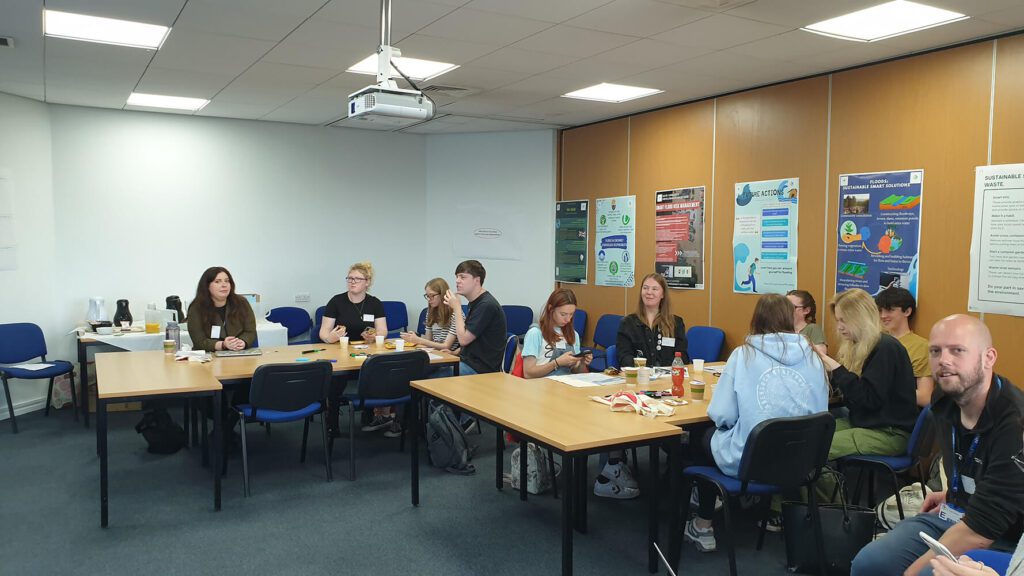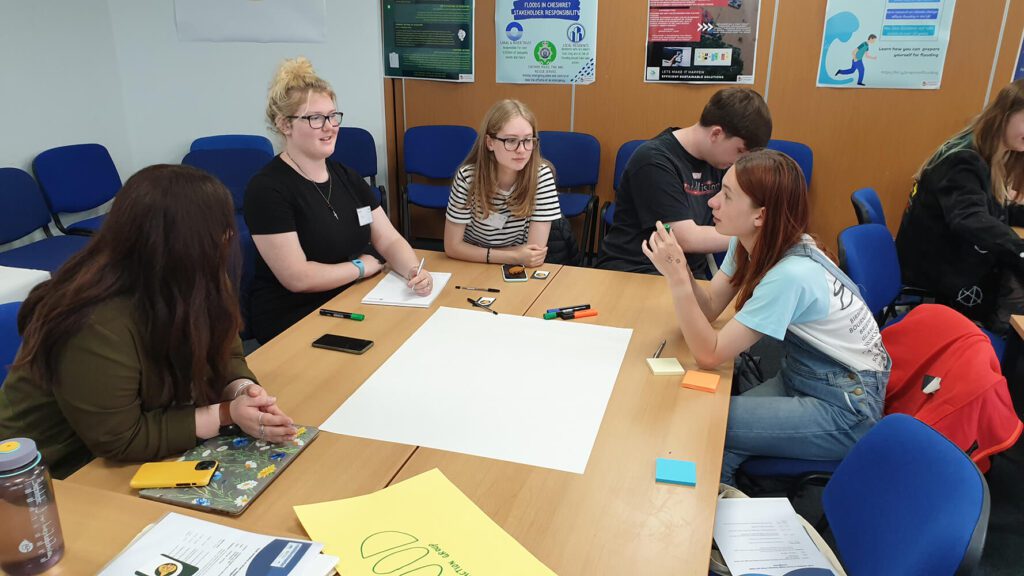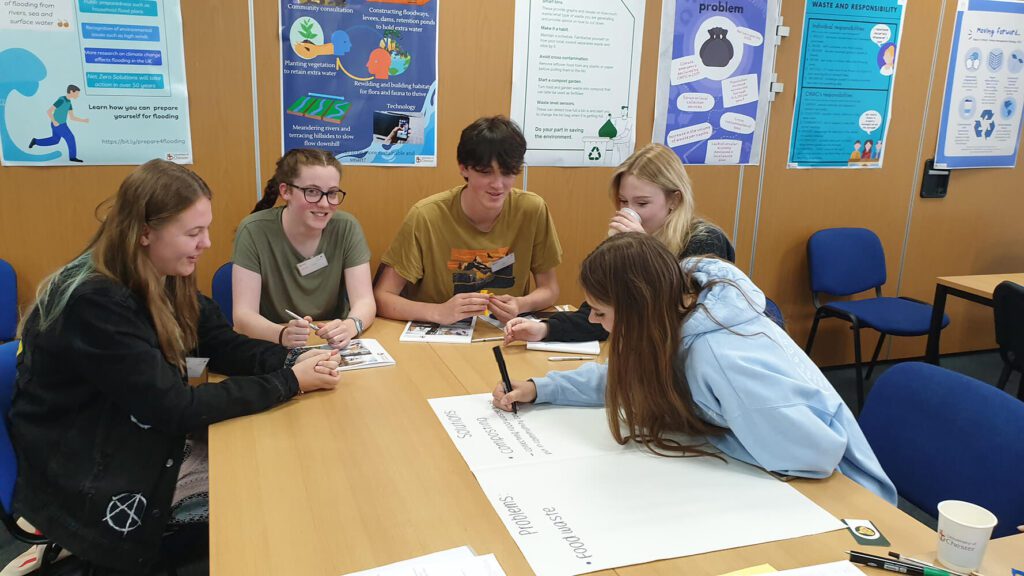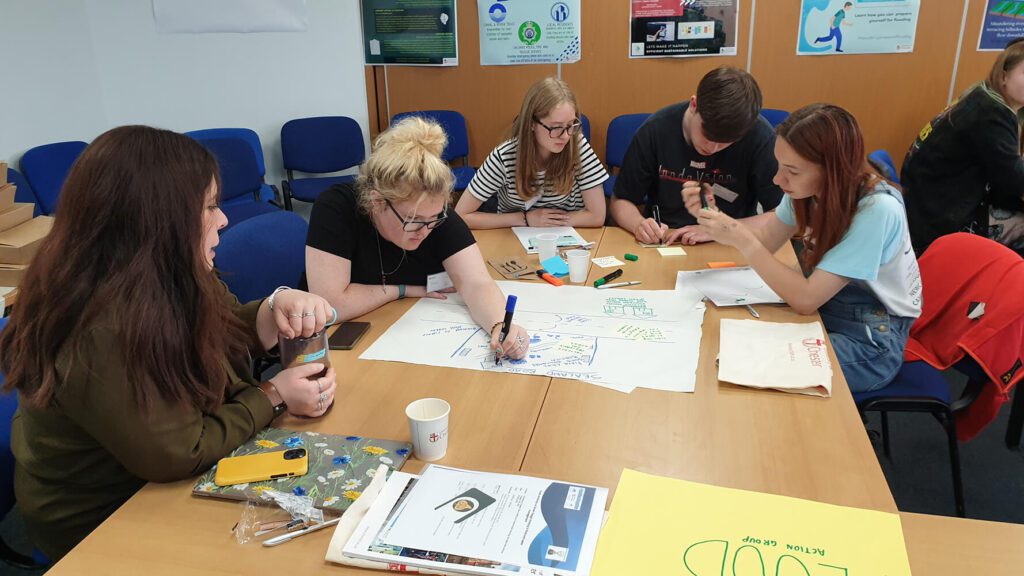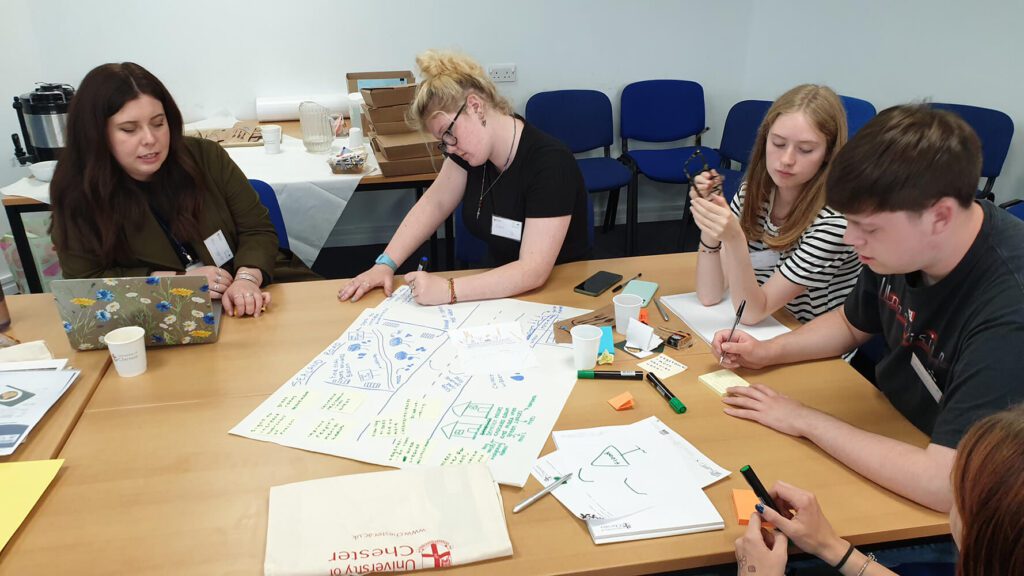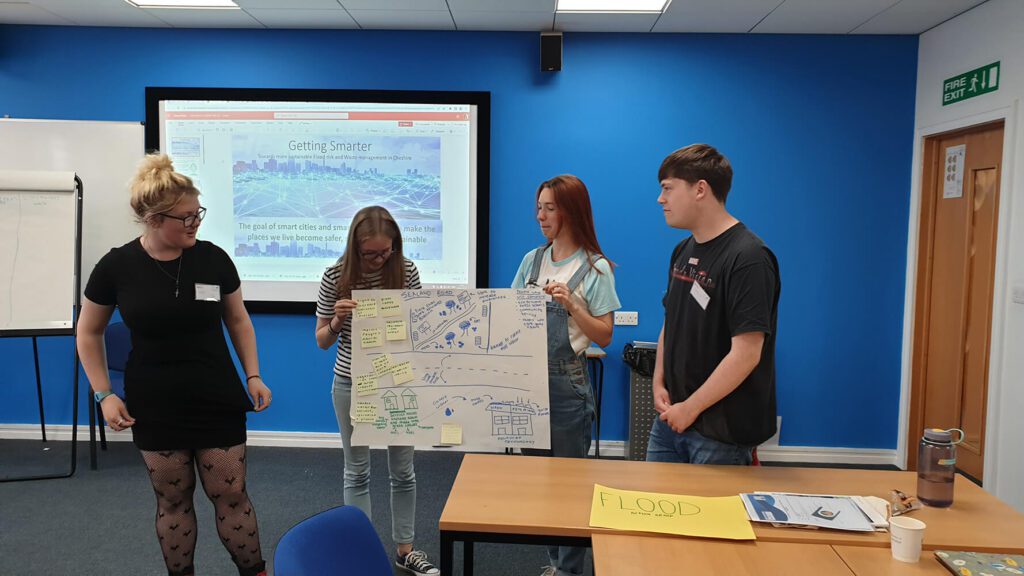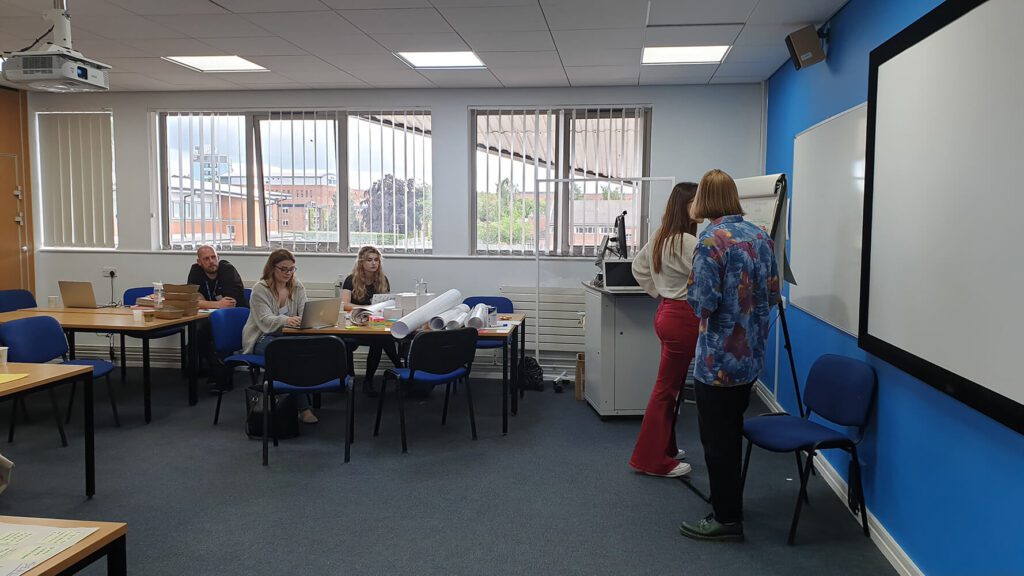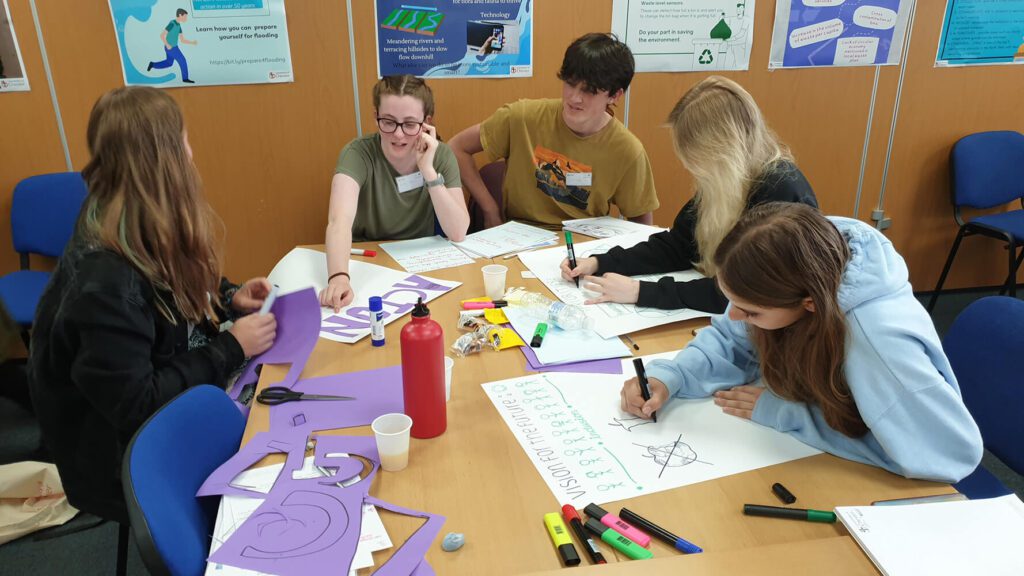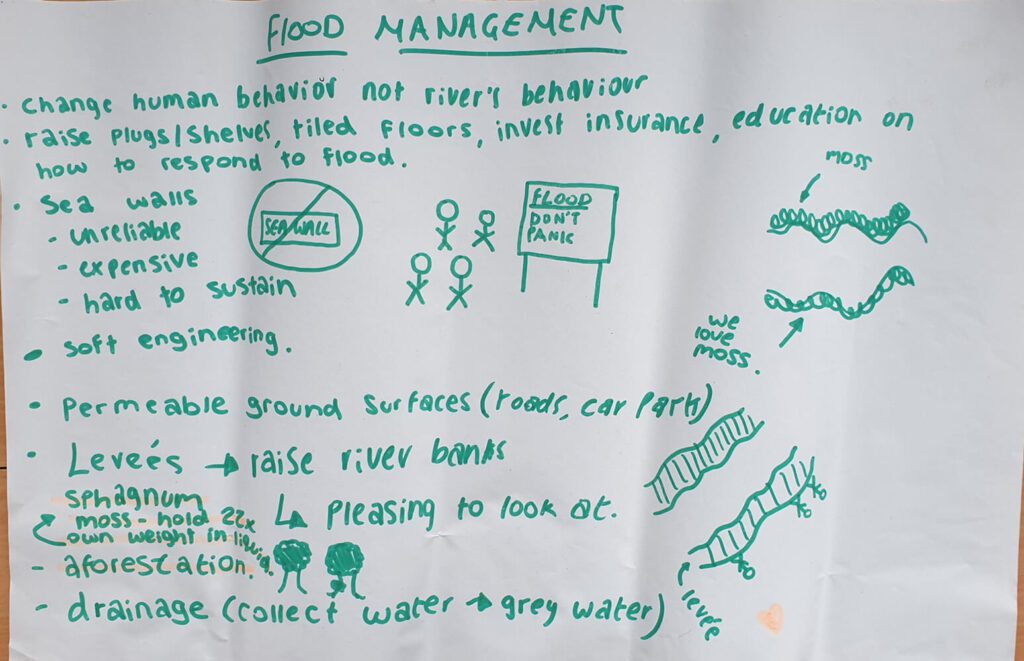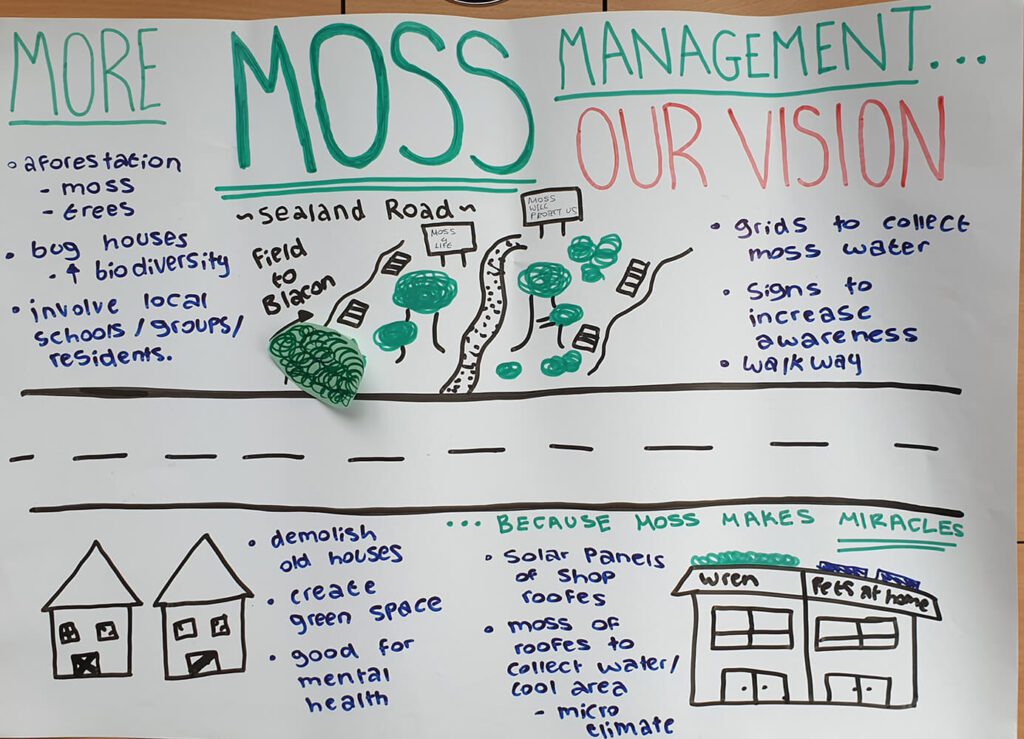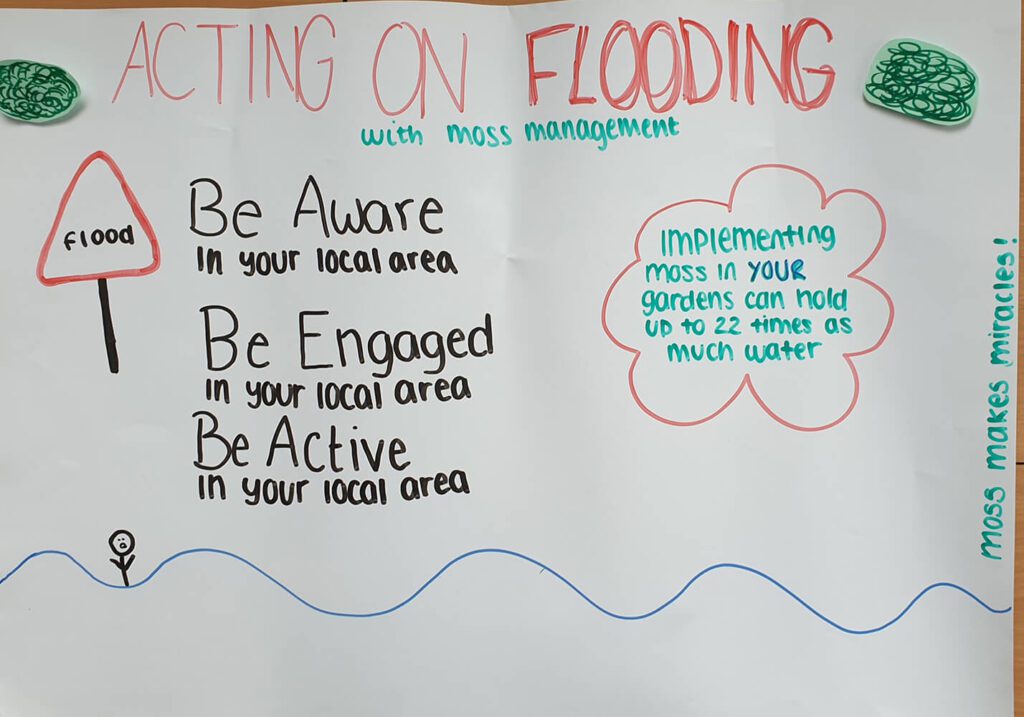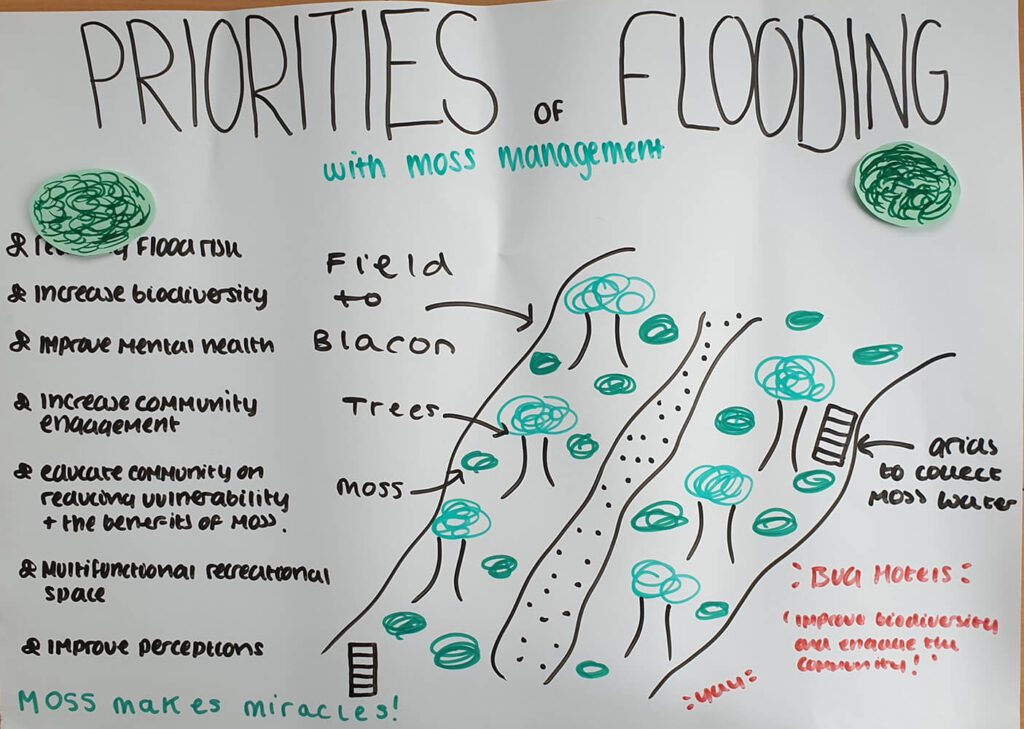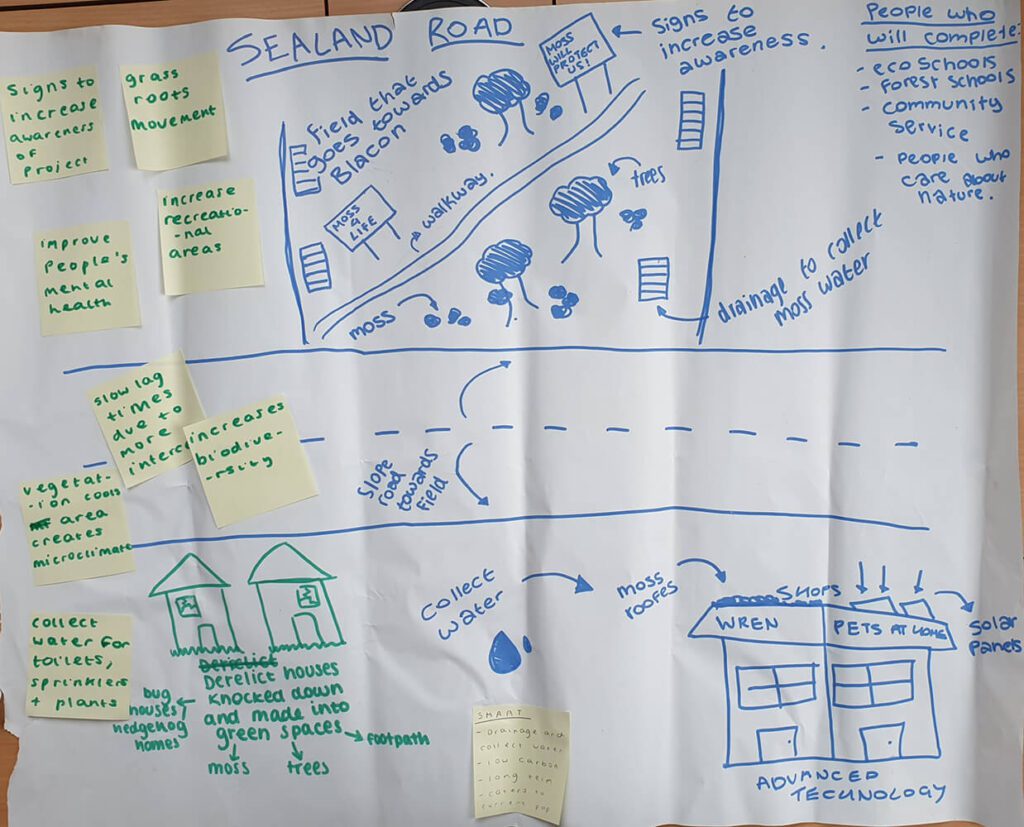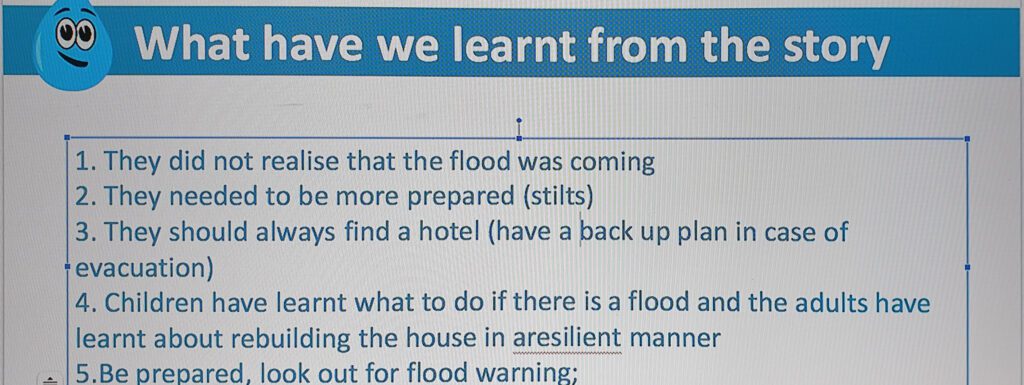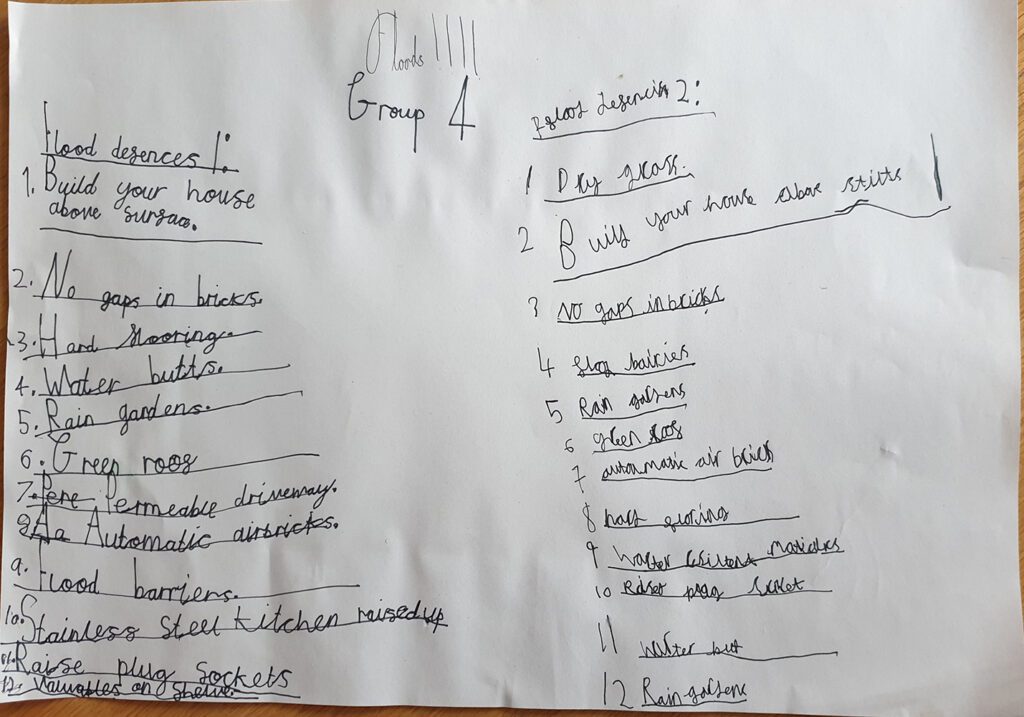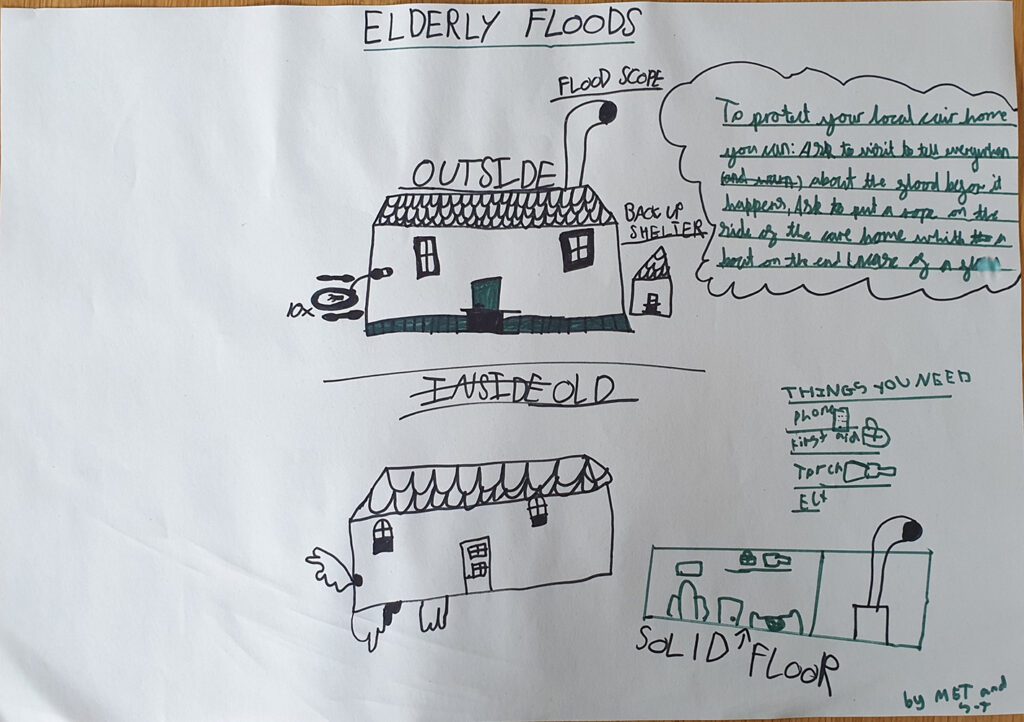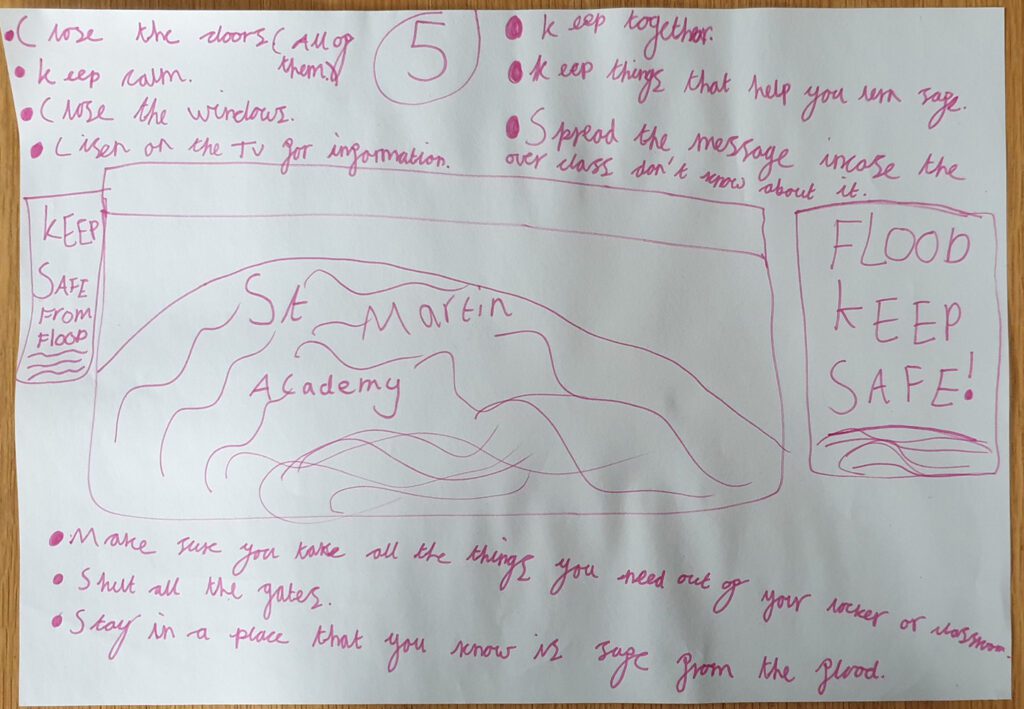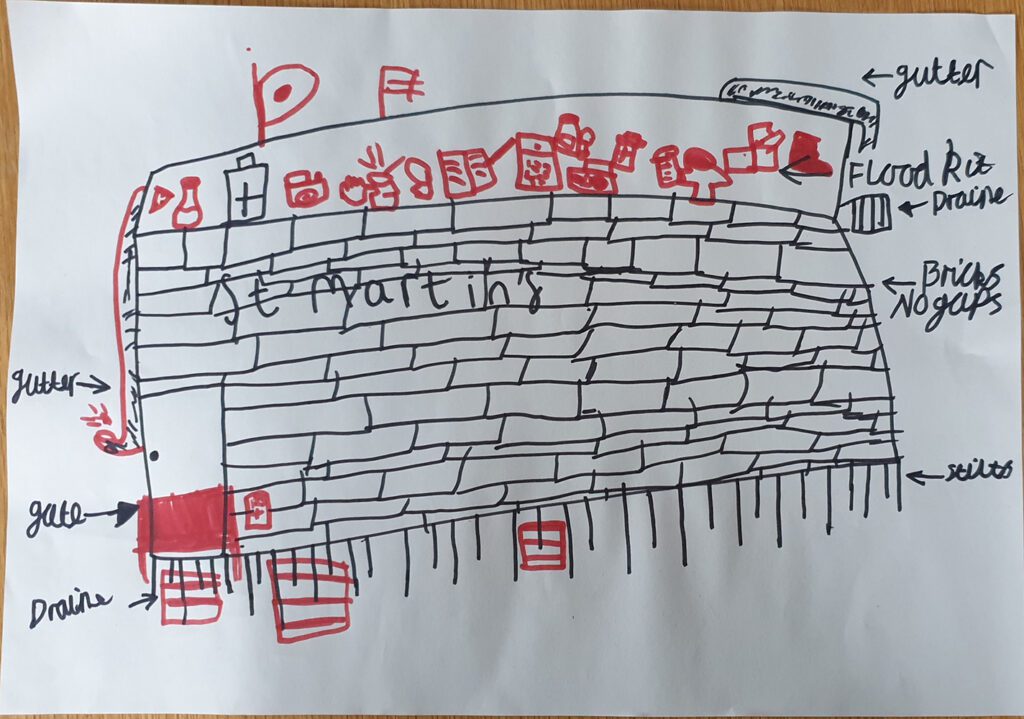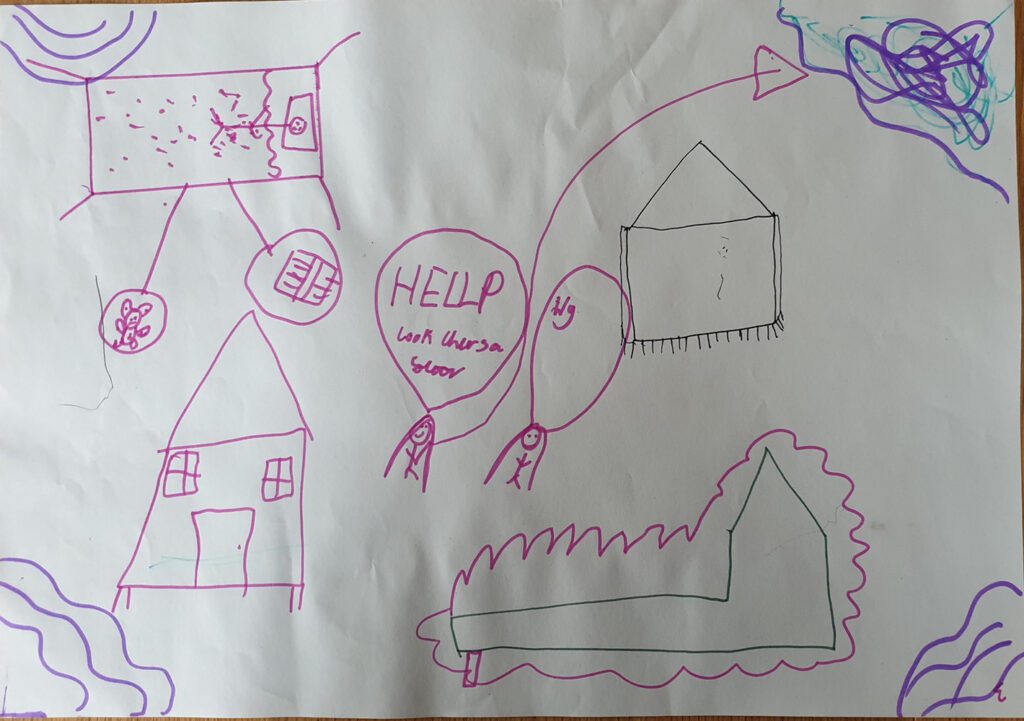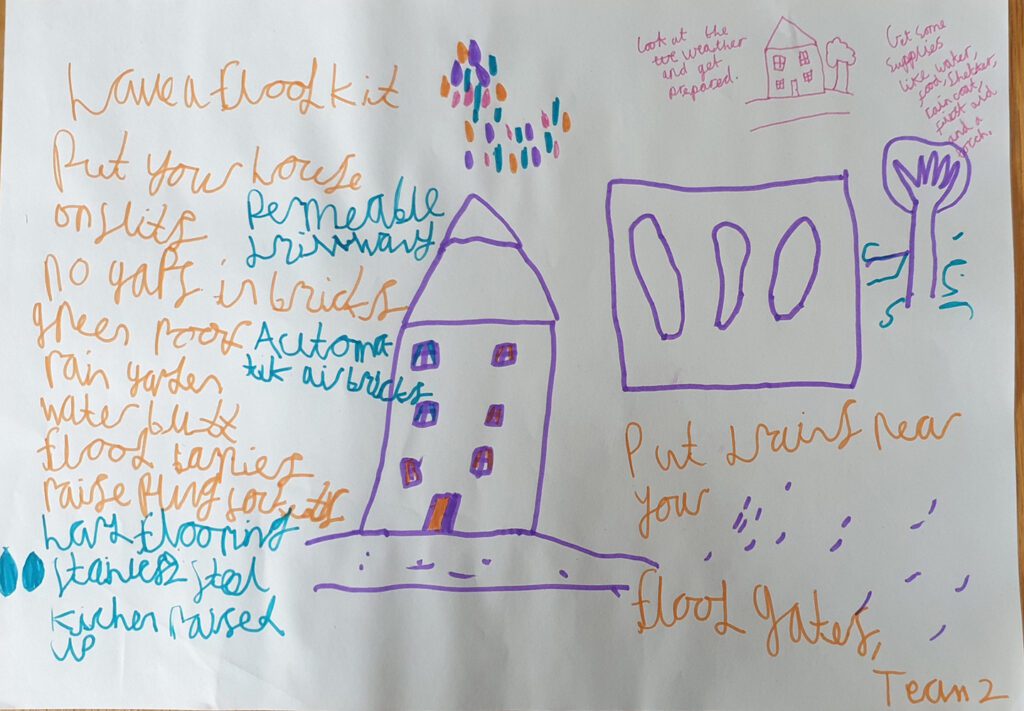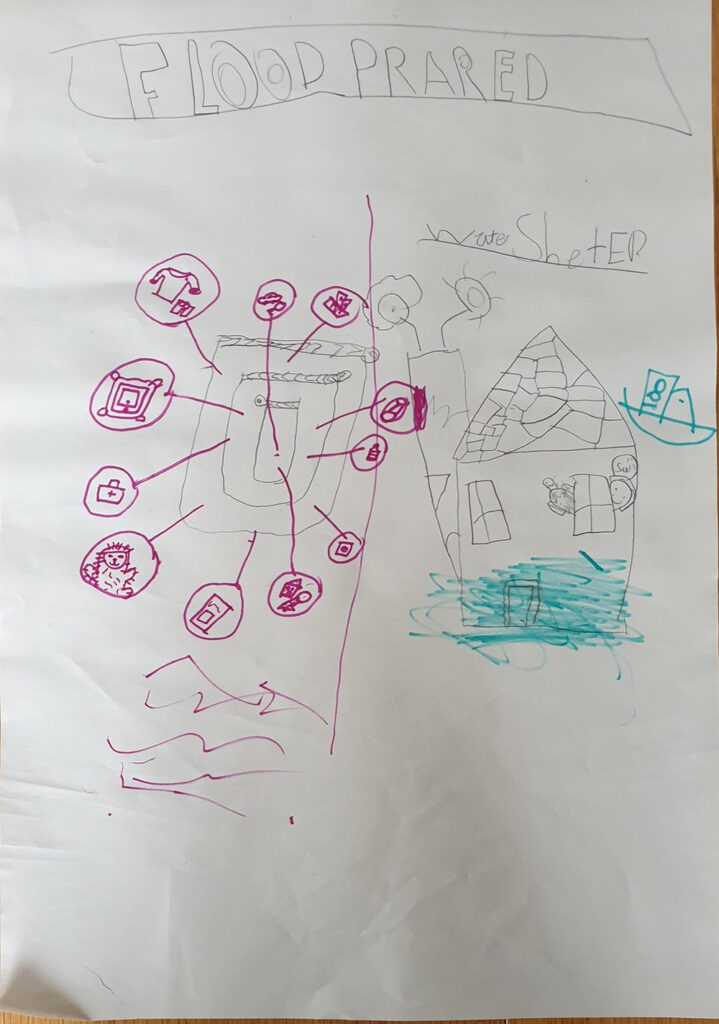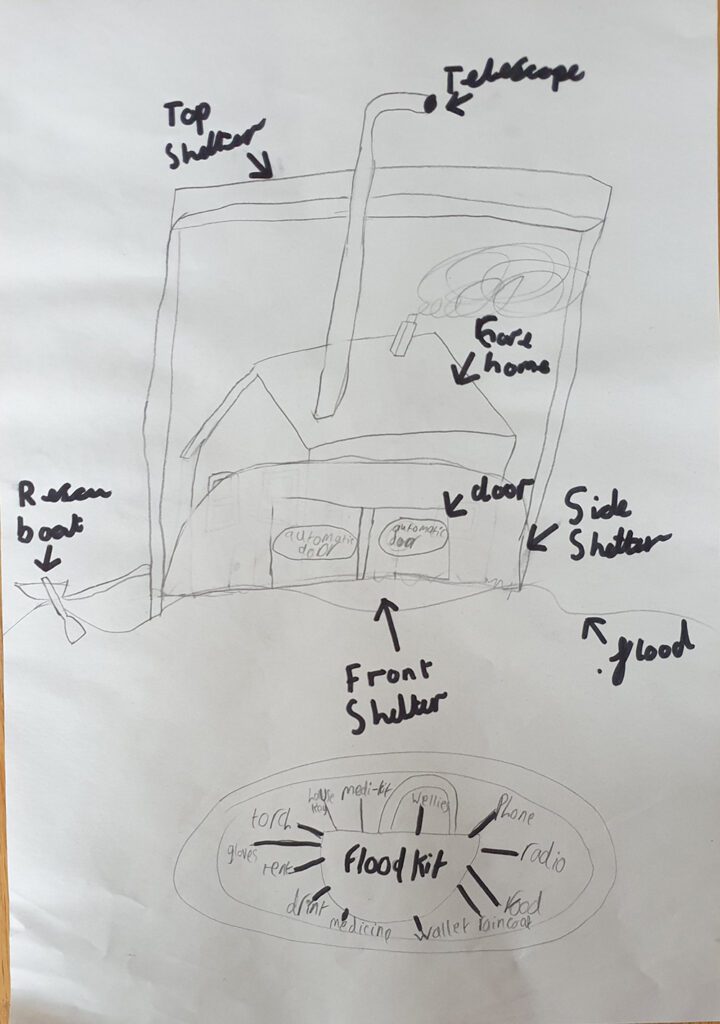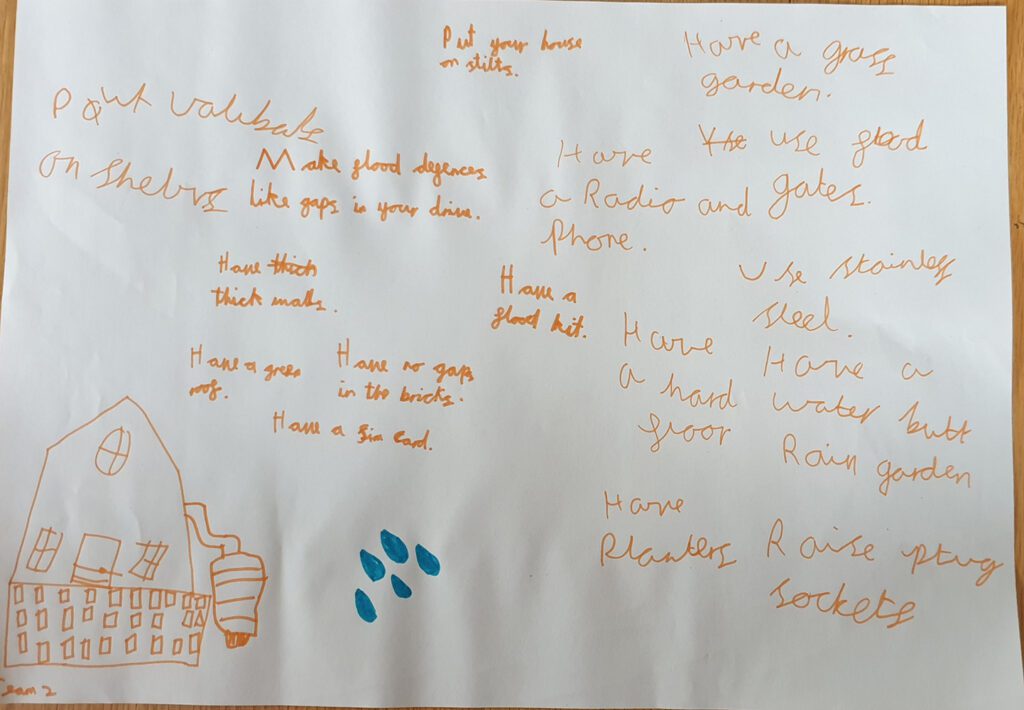School Workshops
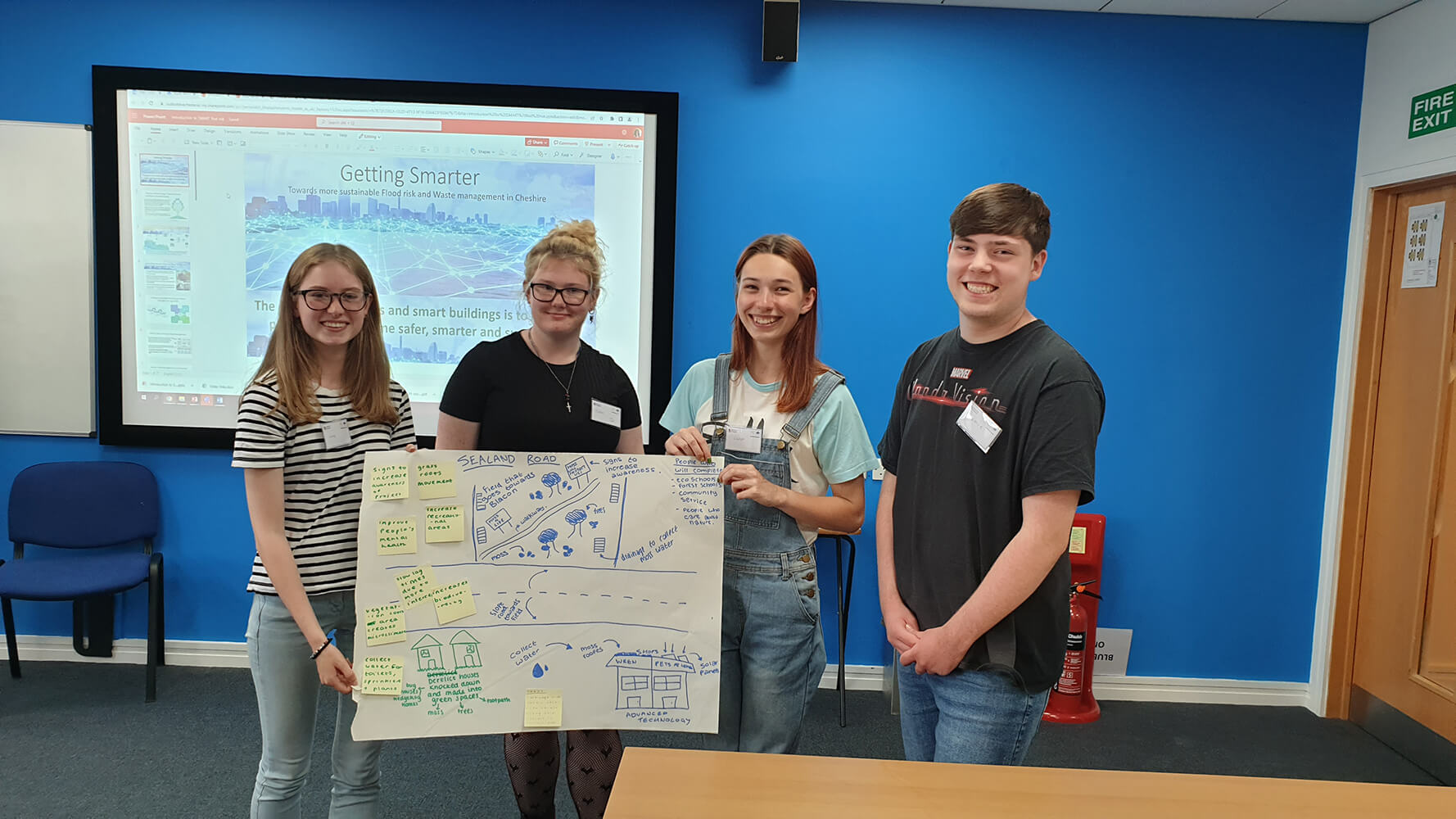
Secondary School (Flood)
Preparation Actions Identified:
- The need to spread awareness of flood risk – this could be achieved through signage.
- Education relating to flood recovery to reduce vulnerability and improve perceptions of risk.
- Invest in insurance.
Flood Mitigation/Reduction Methods:
- This workshop was very supportive of utilising vegetation to increase infiltration and storage – they recommended the use of moss, especially sphagnum which can hold 22x its own weight in water. This could be used in gardens and on green roofs. Furthermore, students acknowledged the importance of afforestation as a means of interception storage.
- This offers multiple benefits such offering amenity to residents, increases biodiversity, produces cleaner air.
- Students acknowledged soft engineering approaches to be most effective and suggested that car parks and other non-permeable surfaces should be made permeable.
- Furthermore, they suggest there should be a shift away from hard engineering approaches such as flood/sea walls as they believed these to be unreliable instead favouring the use of vegetation.
- They also acknowledged the need for people to change their behaviour, not change the river.
Stakeholders Identified:
- Shops
- Schools
- Community/residents
- Council
- Landowners
- Businesses
- Environment Agency
Primary School (Flood)
Preparation Actions Identified:
Flood kits containing:
- Phone
- First aid kit
- Torch
- Water
- Food
- Shelter
- Clothing (incl. warm clothing and robust footwear)
- Belongings
- Radio
- Place important/valuable possessions on raised shelf.
- Communication of flood risk (group 5) through posters – warnings to vulnerable groups such as the elderly.
- Move to a place you know its flood safe.
Flood Mitigation/Reduction Methods:
- Raising property (stilts were a popular consideration).
- No gaps in bricks
- Hard flooring (tiles, floorboards etc.).
- Water retention methods (water butts, ponds, rain gardens, green roofs, planters in impermeable areas to increase vegetation)
- Flood barriers/gates
- Automatic air bricks
- Raised plug sockets
- Drainage
- Stainless steel kitchen
- A means of escape (e.g. boat/dingy)
- Flood shelters – if house is flooded, people have a separate safe space
- Thick walls
Stakeholders Identified:
- Property owners/residents
- School – St Martin’s (students identified that there needed to flood risk communication in classrooms and important educational material should be stored in a raised location. They also identified that students should be encouraged to stay calm whilst acknowledging potential ingress locations such as doors and windows should remain closed).
- Elderly populous – care homes (Students identified communication to be important in the case of elderly people, whereby a means of escape should be available. Furthermore, they identified care homes should have hard floors to enable them to return to operation quickly).
- Local business.
Secondary School (Waste)
Problems Identified:
- Food Waste
- Clothing Waste
- Energy Waste
Solutions Identified:
- Awareness of problems – use social media as a tool for this.
- Engagement
- Sustainability
- Compost as much waste as possible rather than landfill – to maintain and increase biodiversity. Additionally, it can be used in energy production.
- Reuse & repurpose – donate, refurbish etc.
- Use environmentally friendly transport solutions.
Stakeholders Identified:
- Everyone – enhancement of waste management is to be achieved; it must be inclusive.
- Schools have a role to play as a facilitator.
- The public need to be made aware – methods should be developed to enhance this.
- Council
- Residents
- Food audit people
- Waste management agencies
Benefits of More Sustainable Waste Management:
- Positive mental health impact.
- Better environment.
- Increased biodiversity.



